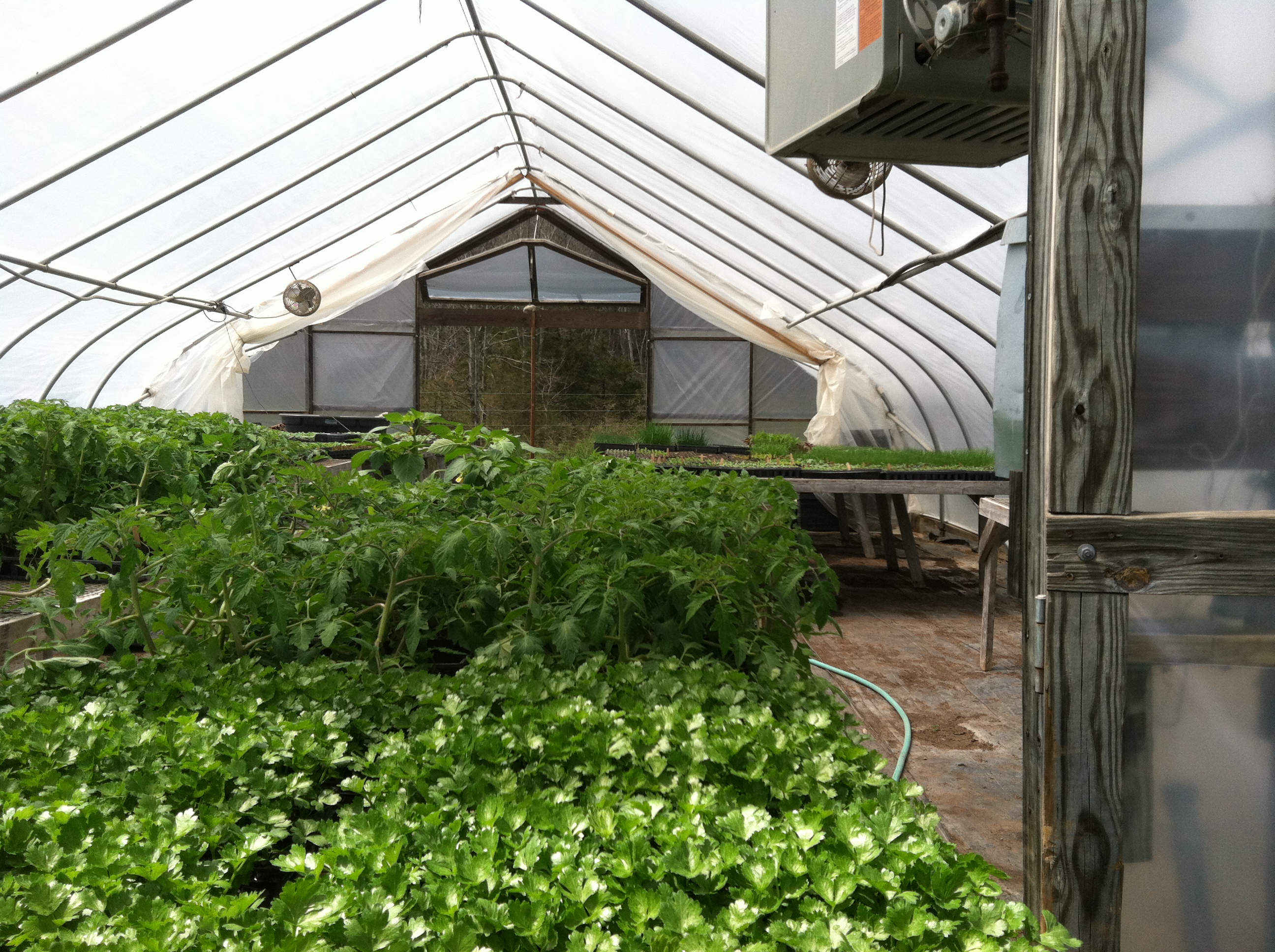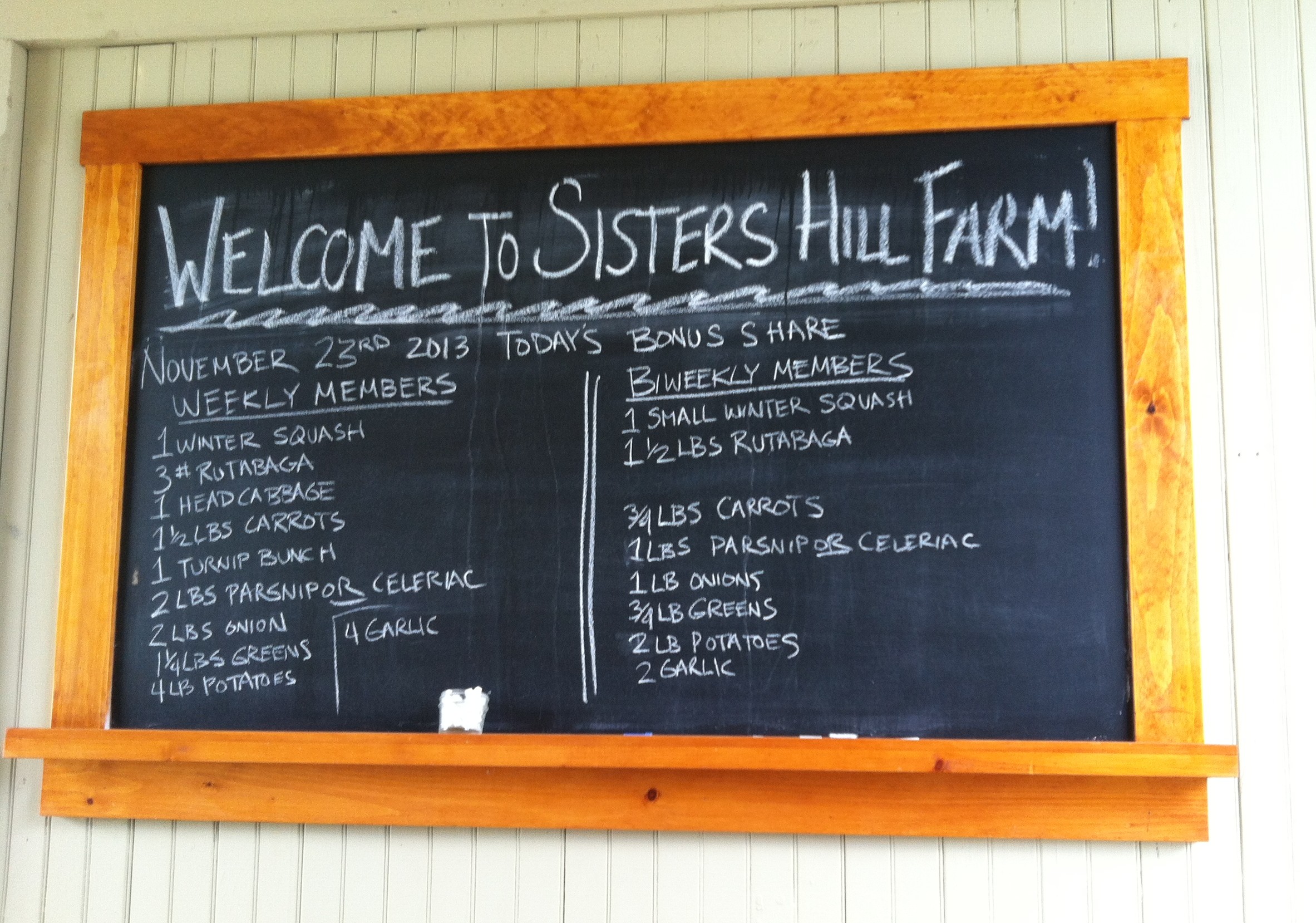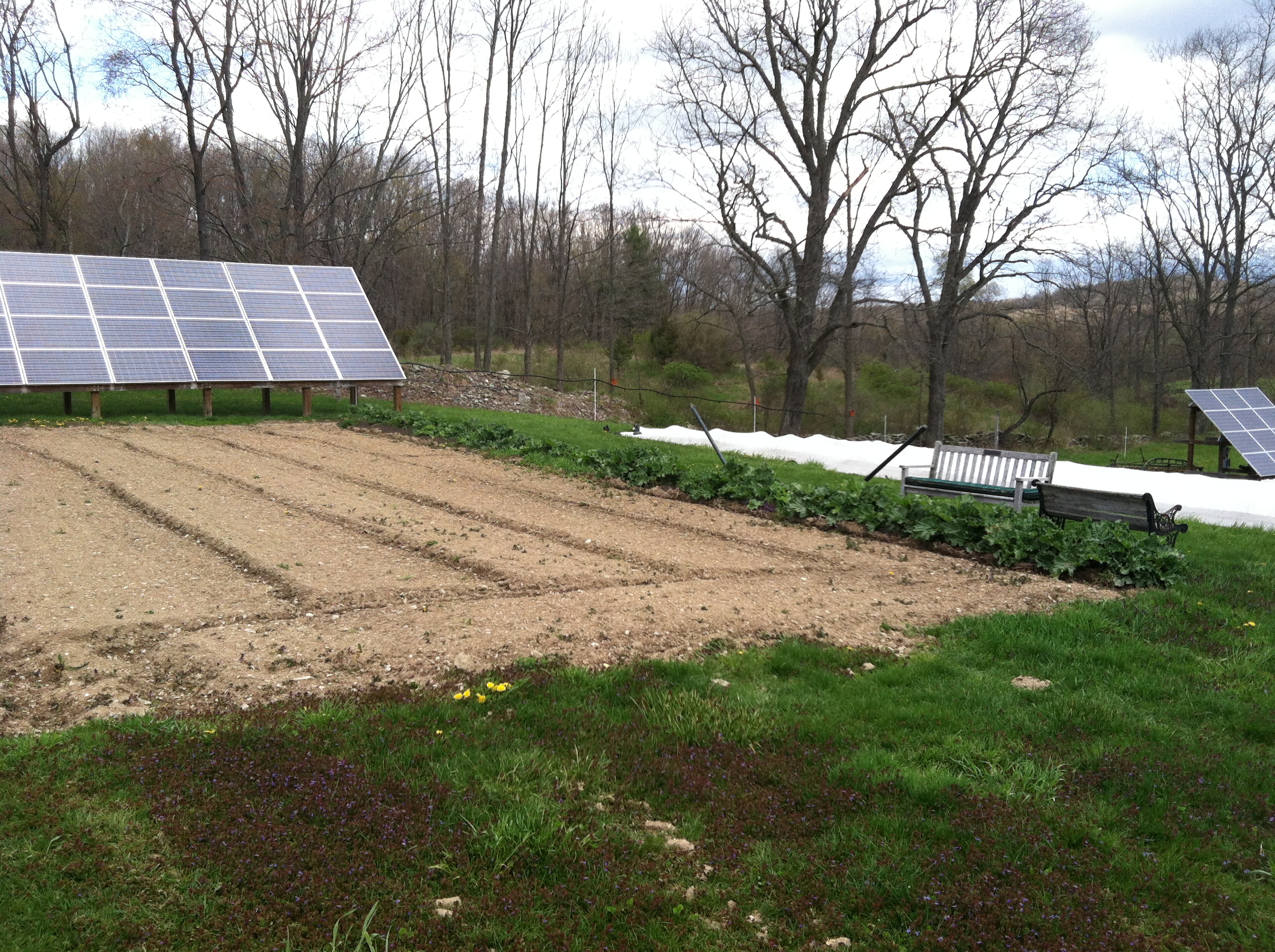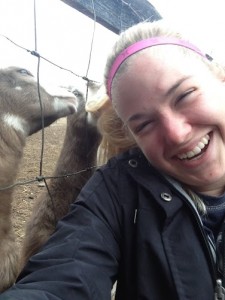 The first fieldtrip in the Field Experiences in the Hudson Valley class was a near-by destination: Sprout Creek Farm, located in the eastern part of the Town of Poughkeepsie. Our visit began with a few words from Sister Margo Morris, who co-founded the farm in Greenwich, Connecticut in 1982, originally as an educational off-shoot of the Convent of the Sacred Heart school. Novice farmers, Margo and other teachers taught students how to farm while they were learning the ropes themselves, an experience that proved transformational for that first generation. Eventually the farm moved to its Poughkeepsie location, inheriting a dairy operation from the estate of Elise Kinkead, a landowner (and Vassar graduate, Margo says) who wanted her farm preserved as a non-profit educational institution.
The first fieldtrip in the Field Experiences in the Hudson Valley class was a near-by destination: Sprout Creek Farm, located in the eastern part of the Town of Poughkeepsie. Our visit began with a few words from Sister Margo Morris, who co-founded the farm in Greenwich, Connecticut in 1982, originally as an educational off-shoot of the Convent of the Sacred Heart school. Novice farmers, Margo and other teachers taught students how to farm while they were learning the ropes themselves, an experience that proved transformational for that first generation. Eventually the farm moved to its Poughkeepsie location, inheriting a dairy operation from the estate of Elise Kinkead, a landowner (and Vassar graduate, Margo says) who wanted her farm preserved as a non-profit educational institution.
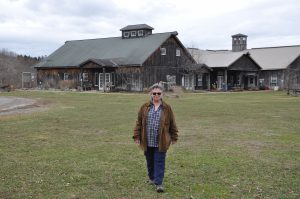
Today Sprout Creek Farm is known for many distinctions. Its award-winning cheese and other products are found in finer grocery stores and on restaurant menus across the Hudson Valley. Children get their hands dirty on the farm through school field-trips, day-long activities, and summer camps. A number of young farmers apprentice their way through Sprout Creek Farm; one of them, educational director Katie Williams, was an eager guide for our class visit. Executive director Mark Fredette (a.k.a. Chef Mark) prepares farm-to-table menus at public and private events on the farm. An inviting farm store is the typical final stop for guests visiting the farm.
 This wide-ranging educational mission isn’t cheap. Although Sprout Creek’s cheese is sold commercially, it costs about $7/pound to produce when all educational expenses are considered, I recall Chef Mark saying somewhere (though I can’t remember the source, so don’t quote me). By 2017, Sprout Creek Farm was in serious financial trouble and undertook an ambitious fund-raising campaign. (I was a speaker at a fund-raising event last fall.) The story has a happy ending: in January, Marist College agreed to take control of the farm while letting Margo, Chef Mark, and the others in the nonprofit continue to manage it. Marist has undefined plans to incorporate Sprout Creek into its curriculum somehow, but Margo said everyone is very happy with the autonomy the college is giving the Sprout Creek crew.
This wide-ranging educational mission isn’t cheap. Although Sprout Creek’s cheese is sold commercially, it costs about $7/pound to produce when all educational expenses are considered, I recall Chef Mark saying somewhere (though I can’t remember the source, so don’t quote me). By 2017, Sprout Creek Farm was in serious financial trouble and undertook an ambitious fund-raising campaign. (I was a speaker at a fund-raising event last fall.) The story has a happy ending: in January, Marist College agreed to take control of the farm while letting Margo, Chef Mark, and the others in the nonprofit continue to manage it. Marist has undefined plans to incorporate Sprout Creek into its curriculum somehow, but Margo said everyone is very happy with the autonomy the college is giving the Sprout Creek crew.
 I hope my students appreciate the economic context and innovative solutions highlighted by this story, but I fully understand if the thing they took away most from their visit was the first-hand encounter with the animals and land at Sprout Creek Farm. Cows, goats, pigs, chickens, guinea fowl, farm cats, and a reclusive family of mice (am I missing anything?) aren’t things that college students — or most anyone else today, for that matter — interact with everyday! I assigned everyone to take a “goat selfie” for their first blog posts, and I suspect these pictures will burn up their social media feeds. (The farm of course recognizes how excited people are to get nuzzled and nibbled by goats; wisely, this has become another opportunity fund-raising and farm marketing.)
I hope my students appreciate the economic context and innovative solutions highlighted by this story, but I fully understand if the thing they took away most from their visit was the first-hand encounter with the animals and land at Sprout Creek Farm. Cows, goats, pigs, chickens, guinea fowl, farm cats, and a reclusive family of mice (am I missing anything?) aren’t things that college students — or most anyone else today, for that matter — interact with everyday! I assigned everyone to take a “goat selfie” for their first blog posts, and I suspect these pictures will burn up their social media feeds. (The farm of course recognizes how excited people are to get nuzzled and nibbled by goats; wisely, this has become another opportunity fund-raising and farm marketing.)
For more history of Sprout Creek Farm, this 2012 article on the Rural Intelligence blog is a really good source.
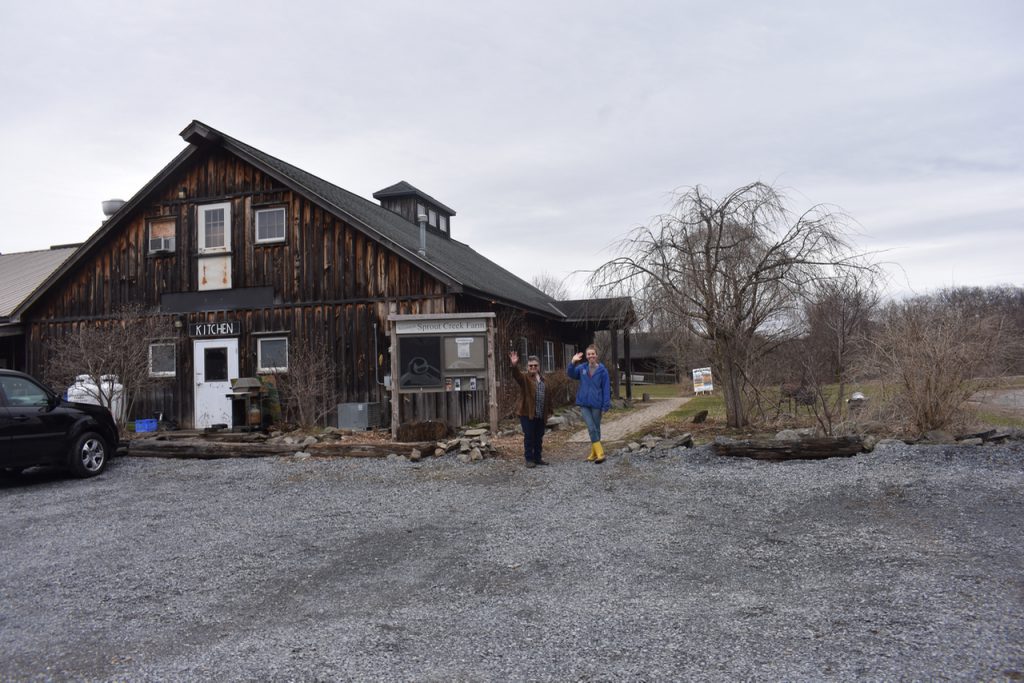
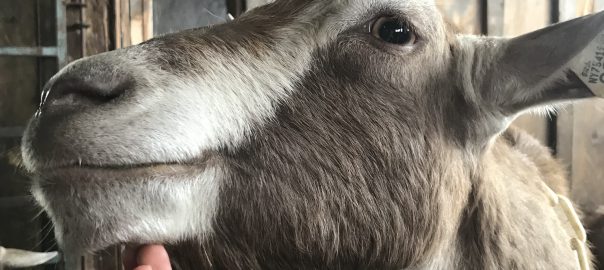
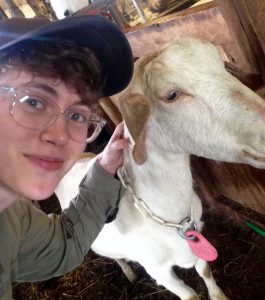
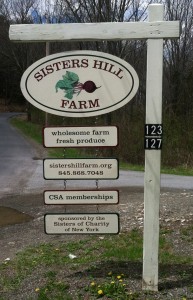 This Sunday I visited Sisters Hill Farm, a CSA in Stanfordville, Dutchess County. The farm was founded by the
This Sunday I visited Sisters Hill Farm, a CSA in Stanfordville, Dutchess County. The farm was founded by the 